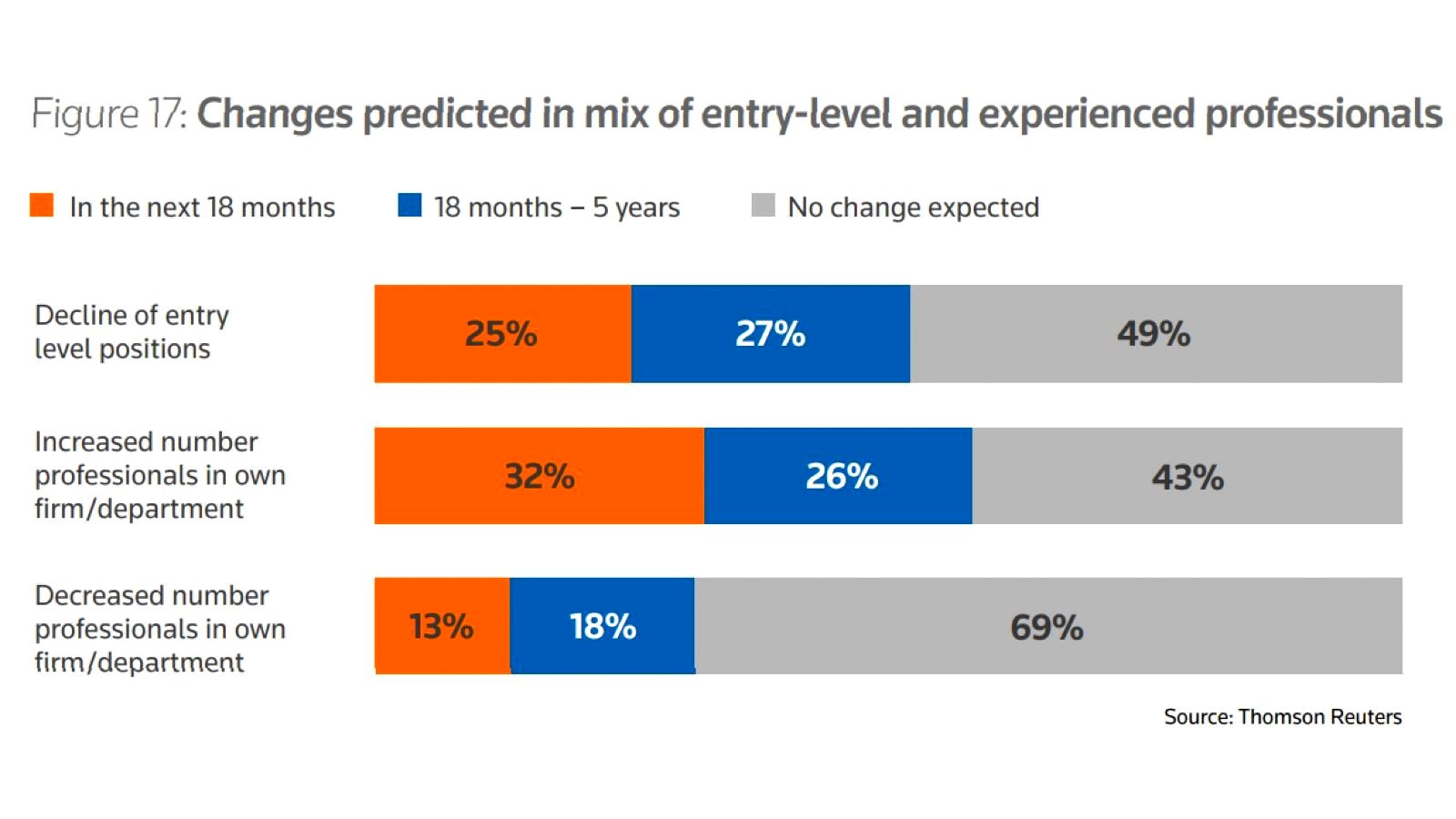Anticipated Shifts in Job Roles and Career Paths
The talent industry is undergoing significant changes, especially with the expected integration of artificial intelligence (AI) into the workforce. This transformation is projected to create opportunities for professionals to focus on higher-value tasks, catering to strategic advisory needs within businesses.
A recent report by Thomson Reuters, titled Future of Experts, analyzed insights from over 1,200 professionals across various sectors in North America, Latin America, and the UK. While the survey did not include HR respondents from Asia, the findings are relevant to the HR community.
The survey highlights an imminent evolution in job roles, with a growing emphasis on non-traditional positions that may not necessitate conventional qualifications. A substantial number of respondents foresee these changes occurring within the next 18 months to five years.
The research indicates a shift towards delegating certain tasks, previously handled by credentialed experts like JDs and CPAs, to professionals without specialized licensure. As automation and AI technologies streamline routine tasks, there is a trend towards leveraging less experienced staff for these responsibilities.
By embracing this approach on a broader scale, organizations can potentially enhance their profit margins and explore cost-effective avenues to drive revenue growth. The demand for legal tech consultants is expected to surge as legal professionals increasingly adopt automation and AI solutions.
Furthermore, the evolving landscape of entry-level roles and responsibilities for junior employees is reshaping career progression opportunities. Despite a projected decline in entry-level positions, there is a suggestion that junior staff may be entrusted with more challenging tasks, fostering their strategic capabilities early in their careers.
The anticipated changes in job roles and skill requirements underscore the need for enhanced training and development initiatives. Professionals foresee a rise in training needs, encompassing basic AI proficiency, upskilling of existing staff, and revised approaches to educating young professionals.
Notably, the consensus among experts is that AI training will become a mandatory component for all practitioners in the next five years. The evolving skill demands are expected to reshape traditional university education and professional training methods, emphasizing the importance of adapting to the changing landscape of expertise and technology.






